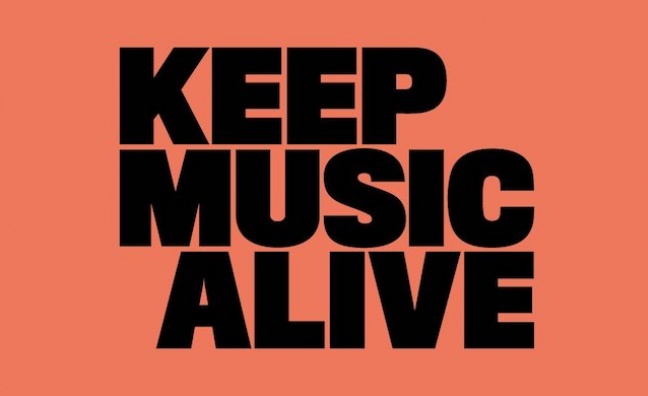One thing about all this time in isolation is, it gives you plenty of time to think.
Forcing the music world indoors at a time when we would normally be wading through mud to watch bands at festivals has led to much pondering, as predicted in this column a month ago, about the state of the recorded music business model.
The Ivors Academy and Musicians’ Union have launched the Keep Music Alive campaign, calling on the UK government to review the functioning of the streaming market – with the aim of getting songwriters and artists more money. Similar arguments have also gained plenty of traction on social media under the Broken Record hashtag as part of a separate campaign while, in his Music Week Viewpoint on the subject, Ivors Academy CEO Graham Davies highlighted what he sees as "a disconnect between perceptions that all are benefiting from the huge riches streaming brings, with the reality that many music makers need hardship support".
The labels, having finally returned to growth after years of decline, are keeping a low profile but, privately, executives note how easy it is to under-estimate record companies’ contribution to breaking records and artists. After all, over 20 years after the Napster revolution, how many global superstars – or even successful mid-tier acts – have genuinely come through without label backing?
The trouble with this argument is, nobody's completely wrong, but that doesn't mean somebody's completely right
Music Week
You see, the trouble with this argument is, nobody’s completely wrong, but that doesn’t mean somebody’s completely right. Artists and songwriters deserve more money from streaming, but that doesn’t necessarily mean DSPs or record companies deserve less. Spotify, rightly or wrongly often in the firing line over this debate, can afford to pay Joe Rogan $100 million for his podcast, the argument goes, so why can't it pay the musicians that built its business, currently valued on the stockmarkets at over $30 billion, more money?
Yet Spotify is not yet a consistently profitable business – and might never become one if it has to distribute more than the 65-70% of revenues it already sends the way of rights-holders. And, given that the more time people spend listening to podcasts, the fewer royalties the streaming company pays to musicians, would artists and songwriters getting a bigger slice of the pie make further Rogan-style deals more likely, or less?
The coronavirus crisis has added urgency to the creatives’ cause as revenues in other areas dry up, but it has also increased the need for cross-industry cooperation.
As our lockdown analysis in the new issue of Music Week, available now, shows, music remains essential to the public even during the biggest crisis. And the music business, too, continues to function well despite unprecedented external disruption to its operations.
So by all means let’s have an honest review of the streaming model, as long as it incorporates everything from subscription pricing to user-centric models, a path for streaming companies to make money, and a look at label deal structures alongside marketing costs (personally, I'd prefer to see the music industry work it out amongst themselves rather than involve the government, but that's by the by).
But let’s also remember that everyone in this business needs everyone else in order to make a living. Some things may need fixing, but if there’s going to be a bright future, we need to make sure music industry unity isn’t broken in the process.
* To make sure you can access Music Week wherever you are, subscribe to our digital issue by clicking here.










